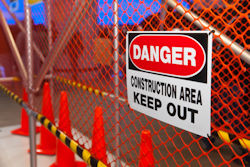Rules vs. Guidelines
It is important to understand the difference between "rules" and "guidelines." It is simple: rules are mandatory - guidelines are optional.

To be valid, rules include words like "must," "shall," or "will." Remember, rules do not give a person a choice: they are mandatory. By the way, if no word is listed, assume it is a rule.
Guidelines, on the other hand, do give employees a choice. They contain words like "should," "recommend" or "may." It is very important to know that you can't really "enforce" guidelines because they are voluntary. If you find that you have guidelines and rules listed together, be sure to define the concepts and separate them so that everyone clearly understands the difference.
You're probably familiar with the safety rules within your company, but, just to make sure, we've listed a few of the more common rules generally found at construction sites:
- Compressed air shall not be used to blow dust or dirt from clothes, hair, or hands.
- Any fear of working at heights must be reported to the immediate supervisor.
- Employees working at height must keep back at least 10 feet from all power lines.
- Do not remove a safety device or safeguard on equipment without proper authorization.
- Excavations more than five feet deep will be shored or sloped as required. Keep out of trenches or cuts that are not properly shored or sloped.
- All workers will use the "four to one" rule when using a ladder. One foot of base for every four feet of height.
- Portable ladders in use shall be equipped with safety feet unless the ladders are tied, blocked or otherwise secured.
Knowledge Check Choose the best answer for the question.
4-3. Which of the following would be considered a guideline?
You forgot to answer the question!
